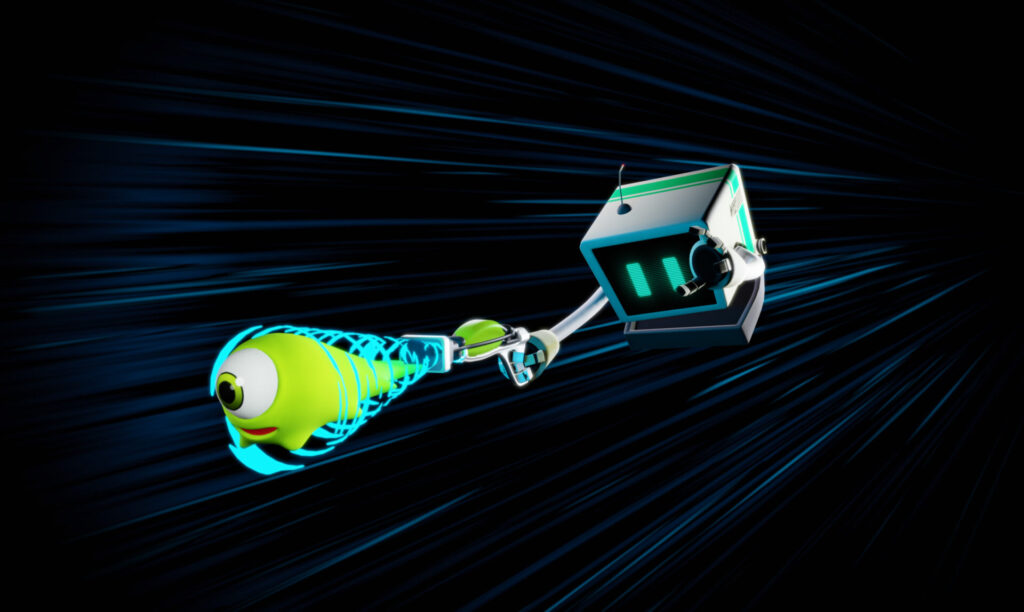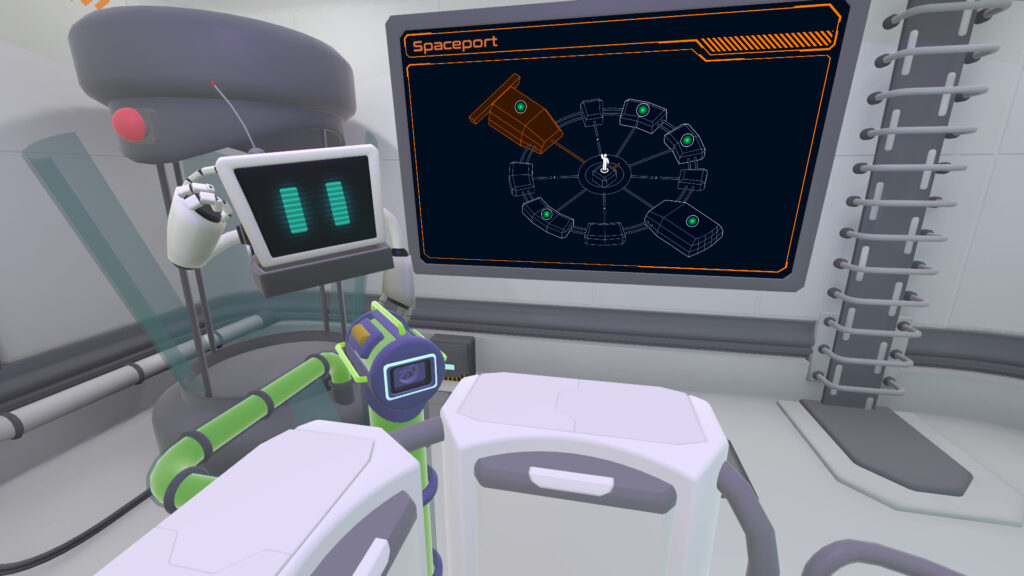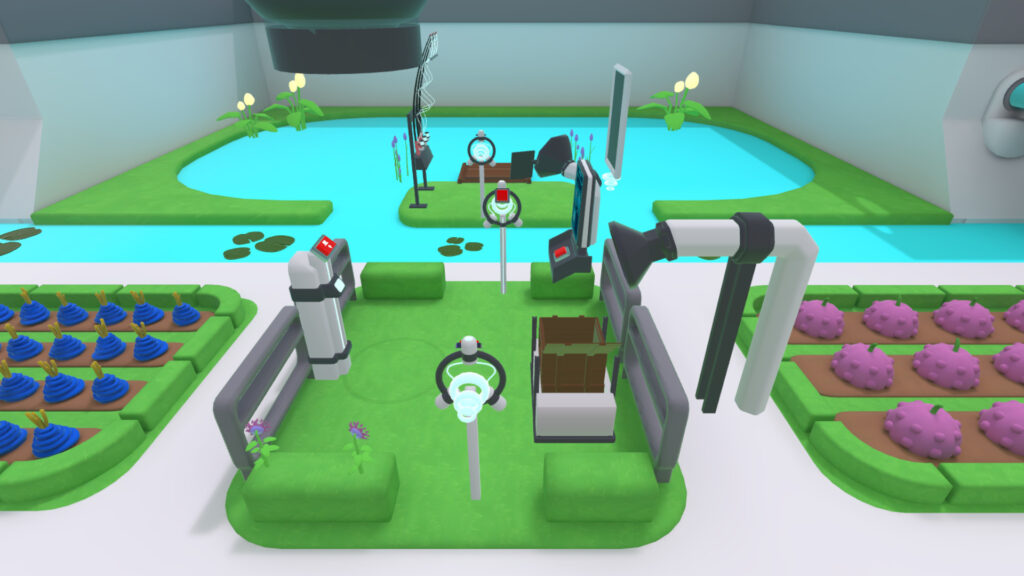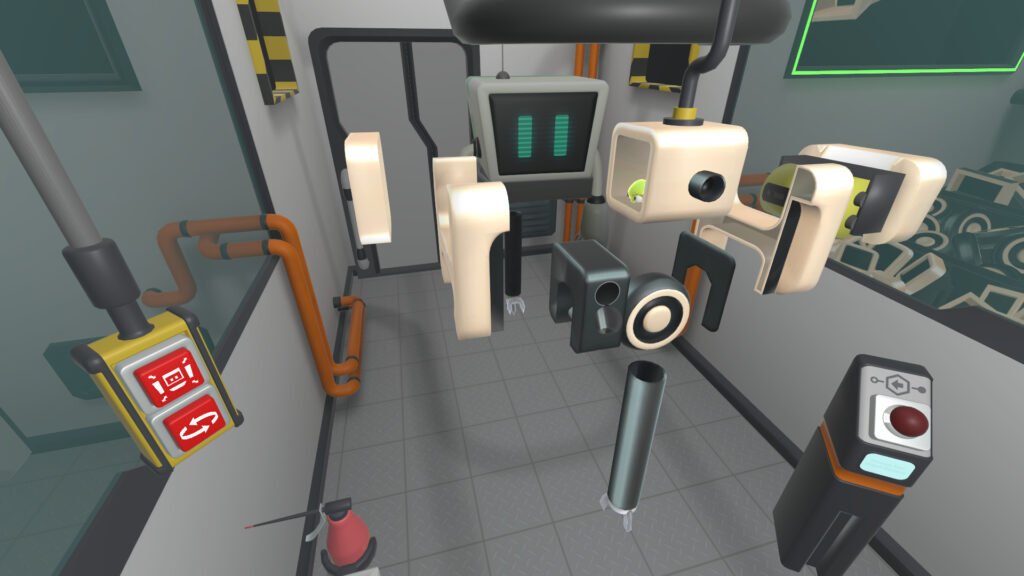Alison Lang, the CEO of Changingday, is a pioneering leader in interactive gaming. With her new game BLINNK and the Vacuum of Space, she invites players to explore a unique universe with an engaging atmosphere. Join us for an exclusive interview with Alison Lang as she shares more about her groundbreaking venture and how it reshapes autism gaming representation.
What inspired you to create BLINNK and the Vacuum of Space?
Alison Lang – Our daughter was diagnosed autistic at the age of 2. Like all parents of autistic people, we’ve always been on the lookout for ways to help her get the most out of life. I came across VR six years ago, and it immediately seemed to me that it was perfect for autistic people, offering a total escape to a place where they can be themselves.
How did you develop a game that caters to autistic players? How much input and feedback did you get from them?
Alison Lang – From the beginning, we were clear that we wanted to create a game based on what autistic people want, not what we or anyone else thinks they ought to have.
Alison Lang – That meant doing a lot of research and talking to a lot of autistic people to find out what they like, what they find frustrating, what they are good at and what they would like to see change. Based on this, we built four prototypes and tested them amongst 140 people. The lessons we learned formed the basis for BLINNK.
We have continued to consult and test with autistic people as the game has developed to ensure that we’re always heading in the right direction.
We are also determined to work with and employ autistic people, and their input has been key to helping us remain true to our audience.
What do you hope players will gain from playing this game?
Alison Lang – First and foremost, we hope they enjoy playing it. Autistic people play more games per head than neurotypical people, but games are not designed for them. The colours can be too bright, the music too loud, the gameplay doesn’t always make sense. By ensuring every design decision is made to suit autistic players, we hope that this is a game they will feel comfortable playing.
However, we also know that behaviours learned in the digital world can be transferred to the real world. So we hope that by making the Dentist level fun, for example, we can take the stress out of the player’s next real-world dental appointment. And by introducing gameplay that reinforces the strengths of autistic people, we can build self-confidence beyond the game.

What sort of accessibility features have you included within the game?
Alison Lang – Accessibility is built into every level of the game. For example, many autistic people are nervous of new situations because they don’t know what to expect. A briefing session is built into the narrative before each new level to show them where they are going, what it looks like and who they will meet there. The gameplay is contained in an area close to the player, reducing the need to move about so minimising the risk of nausea.
If the player becomes over-stimulated, they can hit a Smart Watch and be lifted instantly out of the game to a soothing space where they can calm down. Then, they can hit the watch and reenter the game when they are ready.
This space also includes an Accessibility Menu, which allows them to further refine the look, sound and play in the game. For example, many autistic people are upset by low-frequency noises, so the Menu lets them dial these out of the game.
This Menu is a key feature, and it has had to be carefully considered. It includes only the most important adjustments because, if we offered too many options, the Menu itself could be a fixation.
What have been the biggest challenges you faced while developing this game?
Alison Lang – The biggest challenge has been identifying what works for the greatest number of autistic players. There’s no such thing as a typical autistic person. Each one is unique, with their own likes, strengths, issues and opinions. They do not fit into a convenient box. We have had to accept that the game won’t be for everyone – there are some who won’t even put a headset on, and others may be hardcore gamers who wouldn’t be interested in BLINNK. For the rest, the task has been to come up with a game that welcomes, challenges and entertains.
What advice would you give to other developers considering creating a game with accessibility in mind?
Alison Lang – The most important thing is that you cannot graft accessibility on as an afterthought, it needs to be built into the game from the ground up. To us, the keys have been to assume nothing, to understand our players as much as we can, and to keep checking that what we think we understand is, in fact, valid.

What’s your favourite part of BLINNK and the Vacuum of Space? What are you most proud of?
Alison Lang – I’m a big fan of the groobs, the mischievous little creatures who are threatening to overrun the Space Station Norpopolis. Considering they’re just a small gathering of green pixels, they seem to be fully alive!
I’m proud of our team and the way they have embraced the very difficult job we set out to achieve, particularly in the midst of a pandemic. They really have been inspirational.
Most of all, I’m proud that we’ve been able to build a game that achieves what we set out to do, to create something for autistic people.
Are there any plans to develop other games within this series?
Alison Lang – We’re already thinking about the next game. The response to the characters we have created suggests that they will be at the heart of it. In fact, given that we’ve created a whole new universe, they could be the basis for limitless games!
What sets BLINNK and the Vacuum of Space apart from other VR games?
Alison Lang – What sets BLINNK and the Vacuum of Space apart is the focus on autistic players. Of course, it had to be a good game in its own right – even if you’re not autistic, it’s fun to play. But it is designed for autistic people to give them their own VR experience that allows them to be themselves.

Are there any features you would have liked to include but couldn’t? If so, why not?
Alison Lang – Technology in VR is changing all the time, so things are possible now that were not around when we started. Features like eye-tracking, face-tracking and hand-tracking have all sorts of potential for us, but I’m sure they’ll be part of the next game.
What would you say to someone apprehensive about playing a VR game for the first time?
Alison Lang – Try it! We have found that as soon as people put on the headset they completely fall in love with it. You don’t have to play games, you could simply walk down a Paris street or go on a virtual tour of the Solar System. But it’s more fun if you’re interacting with the virtual world around you.
Does BLINNK and the Vacuum of Space have any Easter eggs that players should look out for?
Alison Lang – We wanted the game to be its own universe. However, although it is set in outer space, the levels are familiar from our everyday lives – a park, a dentist, a workshop. And there are details within all the alien strangeness that will be familiar, too.

Is there anything else you want our readers to know about this game?
Alison Lang – We have done our best to create a game that autistic players will enjoy. It’s important to us to get feedback on what works and what doesn’t so we can keep on learning and make the next game even better.
What’s next for Changingday?
Alison Lang – We are creating a fifth level for the game as we speak, which will be released as a free upgrade. We are also adapting the game for other platforms so that it is available to more people. But we will soon be turning our thoughts to the next game – we already have a name for it. At the same time, we will be using the knowledge and experience we have gained to look at other potential areas for development.
What does the future of gaming look like to you?
Alison Lang – The future of VR in particular, seems very exciting. As I’ve said, a lot of people haven’t tried it yet, so they don’t know what they are missing. But the number of headsets being sold is rising, and the technology is developing quickly. New, more powerful and more convenient headsets are being released all the time. Pretty soon, everyone will know someone with one, and that’s when things will really take off. It’s not far away.
It’s been an absolute pleasure speaking with Alison Lang, the trailblazing CEO of Changingday. She has pushed the boundaries in interactive gaming with her new game BLINNK and the Vacuum of Space, providing a truly unique experience for autistic gamers. Her dedication to making games accessible to all is inspiring, and we can’t wait to discover what else she has in store. We at Unruly Folk are incredibly thankful for having this chance to learn more about what Changingday is doing, and we wish them all success in their future endeavours.
BLINNK and the Vacuum of Space is available now on SteamVR and Green Man Gaming.























































